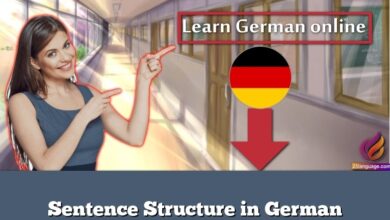Adjective endings in German

Learning about adjective endings in German is important for several reasons:
- Grammar accuracy: Adjective endings play a crucial role in German sentence structure and grammar. Using the correct endings ensures that your sentences are grammatically accurate. German adjectives change their endings based on the gender, case, and number of the noun they modify. Learning these endings helps you construct sentences correctly and express yourself accurately.
- Communication clarity: Adjective endings help convey precise meaning and provide additional information about nouns. They indicate the relationship between the adjective and the noun, such as whether the adjective describes the subject, object, or possessive relationship. By understanding and using adjective endings correctly, you can communicate your ideas more precisely and avoid ambiguity.
- Reading comprehension: When reading German texts, especially literature or more advanced materials, knowledge of adjective endings allows you to understand the precise meaning intended by the author. Adjective endings often provide subtle nuances and can significantly impact the interpretation of a sentence. Being familiar with adjective endings enhances your reading comprehension skills and allows you to engage with German texts more effectively.
- Speaking and writing fluency: Adjective endings are an essential aspect of German fluency. By mastering adjective endings, you can speak and write more confidently, expressing yourself accurately and with precision.
| English | German |
|---|---|
| The big dog | Der große Hund |
| My beautiful sister | Meine schöne Schwester |
| An interesting book | Ein interessantes Buch |
| His new laptop | Sein neuer Laptop |
| The little boy | Der kleine Junge |
| The clever students | Die klugen Studenten |
| My long walk | Mein langer Spaziergang |
| The delicious cookies | Die leckeren Kekse |
| The little girl | Das kleine Mädchen |
| The expensive watch | Die teure Uhr |
| His tired sister | Seine müde Schwester |
| The loud traffic | Der laute Verkehr |
| The beautiful garden | Der schöne Garten |
| The young students | Die jungen Schüler |
| His interesting presentation | Sein interessanter Vortrag |
| The cold winter air | Die kalte Winterluft |
| The modern building | Das moderne Gebäude |
| The happy children | Die glücklichen Kinder |
| The strong wind | Der starke Wind |
| The clean apartment | Die saubere Wohnung |





























